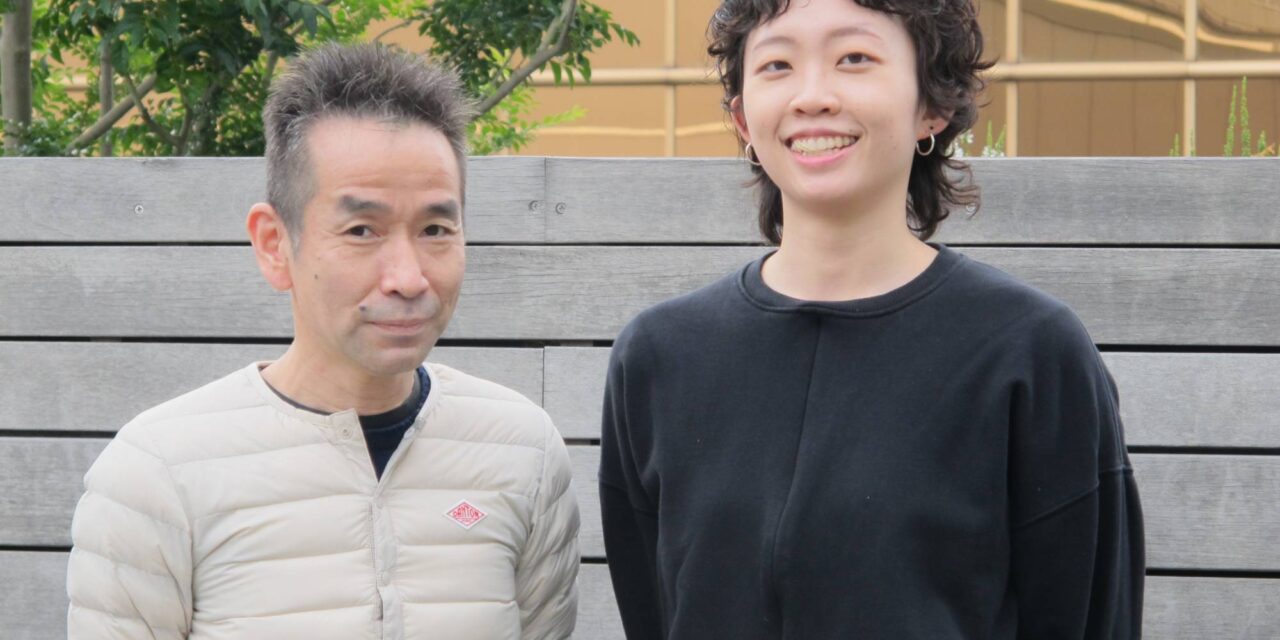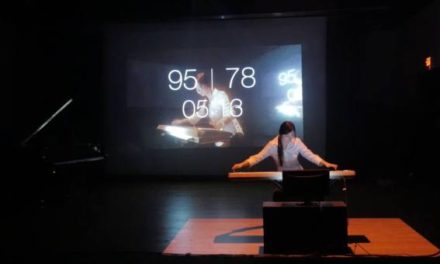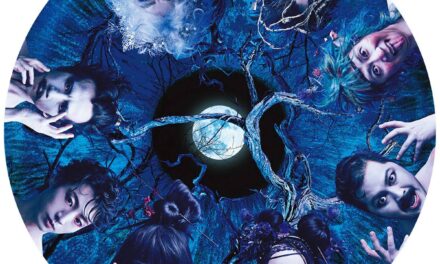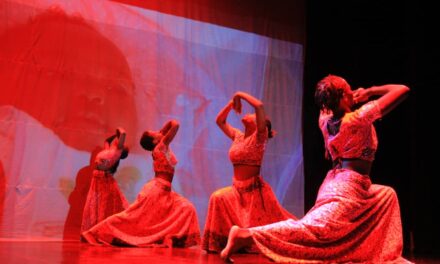Sometimes a gesture of gratitude comes in the form of a carte blanche. Akira Shirai, the departing artistic director of Kanagawa Arts Theatre (KAAT), decided to show thanks to his long-time collaborator, Shuji Onodera, by asking him to create a new work, and saying he could do whatever he wanted with whomever he chose.
As if that wasn’t enough creative freedom, Shirai, who will leave his post in March after five years of running the theater, also told the renowned mime artist and choreographer not to worry about the normal practice of casting celebrities to help sell tickets.
With such an astonishingly blank canvas to work on, Onodera, 54, decided to put together a multicultural cast and crew to try to re-create an international working experience, one that had a profound effect on him.
During a visit to Vietnam and Thailand after being appointed as a Japan Cultural Envoy by the Agency for Cultural Affairs in 2015, Onodera met Vietnamese dancer Nung Van Minh. The introduction led to a series of collaborations between Japanese and Vietnamese artists directed by Onodera, including stagings of his original work Without Signal! at KAAT in 2017 and in Hanoi the next year, followed by its sequel, Waiting for the Signal!, at KAAT in 2019.
“I enjoyed those works so much,” Onodera says. “That experience of working in broken English with people from different cultural backgrounds acted as a stimulus to me and was definitely one of the turning points of my career.
“Honestly, we can share our feelings even without words or a common language … and there are some people I can’t do that with even though we’ve spent a long time together and we both talk in Japanese.”
For his new production, Onodera called upon Minh and another performer from abroad, Taiwanese actress and dancer Juichu Liu, to round out the cast consisting of himself and five other Japanese dancers, including France-based Akiko Kajihara, and Dakei, a deaf butoh artist.
As for the plot, Onodera, whose theater companies Mizu to Abura (Water and Oil) and Derasinera are famous for their “storytelling” mime-dance productions, created Knife, a mime-dance adaptation of French writer Guy de Maupassant’s 1880 short story “Boule de Suif” (“The Dumpling”), an incisive critique of human nature and how people behave in times of struggle.
Set during the Franco-Prussian War (1870-71), in which northern France was overwhelmed by German forces, “Boule de Suif” revolves around 10 travelers attempting to flee from Rouen to the coastal town of Le Havre in a stagecoach.
The passengers represent a microcosm of French society at the time. There is one couple who are shop owners, another who are factory owners, a count and countess, a bureaucrat, two nuns and a prostitute named Elisabeth Rousset.
At first, the others deride Elisabeth, calling her “the dumpling,” but their attitudes change when she offers to share her food as they have none of their own. Along the way, the stagecoach is halted by enemy soldiers, and an officer demands to have his way with Elisabeth before letting the travelers go. The passengers express their disgust for the officer at first, but their feigned morality is soon exposed when they become impatient and tell Elisabeth to give in. In an act of self-sacrifice for the good of her companions, Elisabeth accepts. When the group is released, however, they once again treat her with contempt and ostracize her.
In a joint interview with Liu, Onodera says he chose to base his new work on the 140-year-old French story because it poses uncomfortable questions that remain relevant in our current society, such as whether some lives matter more than others, and how extremes of wealth and poverty lead to injustice.
“Mime is low on explanations compared to theater because there are no words, but that allows (the performance) to act powerfully on an audience’s imagination and affect them in unexpected ways,” Onodera says. “I believe our multicultural team adds to that even more.”
Due to the pandemic, however, this hasn’t been the kind of international collaboration Onodera is used to — not least because the non-Japanese performers had to undergo two weeks’ quarantine when they arrived here for rehearsals.
Liu, who came from Taipei, spent her isolation period in a small apartment in Yokohama, where she had the experience of rehearsing for a production online for the first time.
“It was really difficult for me, I wanted to discuss the work’s themes with the others, but we didn’t have time,” she says. “Also, the room was too small to really move around in, so I am now very happy to join the team in KAAT’s rehearsal room. Even though I am not fluent in Japanese, I can gather a lot of information and feel unity from seeing their movements with my own eyes.”
Onodera adds that he too had to alter his way of working due to the pandemic. “While (Liu and Minh) were in quarantine, I gave them some tips from the text and let them improvise or make up scenes based on my hints. Then I collected those materials and composed some scenes,” he says.
“Honestly, I haven’t had enough time to work on every detail so I’ve tried to make each scene more of a rough framework than usual, with less emphasis on small details. I think that because of COVID-19 many artists are searching for new ways to create works, so I’m not ashamed to display how we are now struggling to the audiences. That is my declaration as an artist. The piece might be a rough-cut, but it is the brilliant fruit of our collaboration.”
Despite the rough nature of his new creation, Onodera isn’t afraid to express confidence in it, particularly because of the specially chosen cast, all of whom he’s worked with before, and the work’s relevance to the current pandemic.
“Though I haven’t read Maupassant’s novel,” Liu adds, “I think Onodera’s new work shows how we have to keep going in a positive way in the face of COVID-19 to overcome all the difficulties involved in creating this work.
“In fact, even to join this project, I had to worry about flying to Japan and staying away from other people for a while … and I suppose (the effort to conquer) obstacles like that will be reflected in this production. I think the audiences will understand that our collective future is on an unknown course, and in the last part of this work, they will realize whether our lives will be better or not.”
Knife was scheduled to run Nov. 21-29 at Kanagawa Arts Theatre in Yokohama. It has been postponed to Dec. 3-6 due to COVID-19. For more information, visit www.kaat.jp.
This article appeared on The Japan Timeson November 18, 2020, and is reposted with permission. To read the original article, click here.
This post was written by the author in their personal capacity.The opinions expressed in this article are the author’s own and do not reflect the view of The Theatre Times, their staff or collaborators.
This post was written by Nobuko Tanaka.
The views expressed here belong to the author and do not necessarily reflect our views and opinions.


















